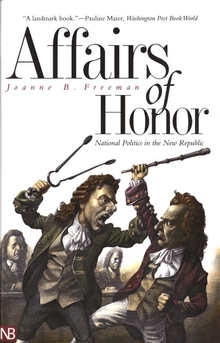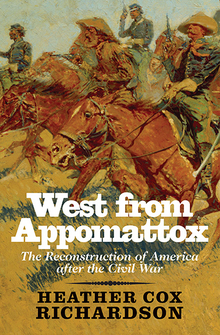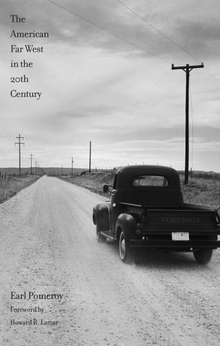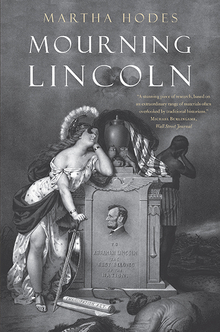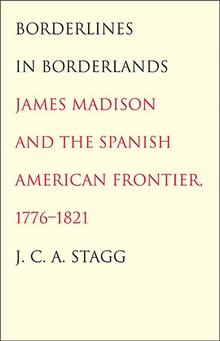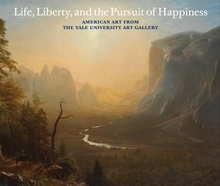Affairs of Honor
WARNING
You are viewing an older version of the Yalebooks website. Please visit out new website with more updated information and a better user experience: https://www.yalebooks.com
National Politics in the New Republic
Joanne B. Freeman
A major reassessment of American political culture in the days of Jefferson, Hamilton, and Burr
"[A] landmark study of Hamilton and the founders."—Jeff Sharlet, Chronicle of Higher Education
"Demands the attention of everyone with a serious interest in the history of American politics."—Pauline Maier, Washington Post
In this extraordinary book, Joanne Freeman offers a major reassessment of political culture in the early years of the American republic. By exploring both the public actions and private papers of key figures such as Thomas Jefferson, Aaron Burr, and Alexander Hamilton, Freeman reveals an alien and profoundly unstable political world grounded on the code of honor. In the absence of a party system and with few examples to guide America’s experiment in republican governance, the rituals and rhetoric of honor provided ground rules for political combat. Gossip, print warfare, and dueling were tools used to jostle for status and form alliances in an otherwise unstructured political realm. These political weapons were all deployed in the tumultuous presidential election of 1800—an event that nearly toppled the new republic.
By illuminating this culture of honor, Freeman offers new understandings of some of the most perplexing events of early American history, including the notorious duel between Burr and Hamilton. A major reconsideration of early American politics, Affairs of Honor offers a profoundly human look at the anxieties and political realities of leaders struggling to define themselves and their role in the new nation.
"[A] landmark study of Hamilton and the founders."—Jeff Sharlet, Chronicle of Higher Education
"Demands the attention of everyone with a serious interest in the history of American politics."—Pauline Maier, Washington Post
In this extraordinary book, Joanne Freeman offers a major reassessment of political culture in the early years of the American republic. By exploring both the public actions and private papers of key figures such as Thomas Jefferson, Aaron Burr, and Alexander Hamilton, Freeman reveals an alien and profoundly unstable political world grounded on the code of honor. In the absence of a party system and with few examples to guide America’s experiment in republican governance, the rituals and rhetoric of honor provided ground rules for political combat. Gossip, print warfare, and dueling were tools used to jostle for status and form alliances in an otherwise unstructured political realm. These political weapons were all deployed in the tumultuous presidential election of 1800—an event that nearly toppled the new republic.
By illuminating this culture of honor, Freeman offers new understandings of some of the most perplexing events of early American history, including the notorious duel between Burr and Hamilton. A major reconsideration of early American politics, Affairs of Honor offers a profoundly human look at the anxieties and political realities of leaders struggling to define themselves and their role in the new nation.
Joanne B. Freeman is Professor of History at Yale University. She recently appeared in the PBS American Experience documentary "The Duel," exploring the fatal 1804 clash between Burr and Hamilton. She is also the editor of Alexander Hamilton: Writings, published by the Library of America.
"A landmark book."—Pauline Maier, Washington Post Book World
". . . [A] romp through . . . personal notes and public papers . . . both well-researched and well-written . . . lively and idiosyncratic."—Scott Bernard Nelson, Boston Globe
". . . .[H]ard-hitting, fast-paced, comprehensively researched . . . one of the most intelligent and innovative studies in early American political culture. . ."—Andrew Burstein, American Scholar
"[An] excellent and thought-provoking new study . . . a masterful command of primary sources . . . [that] reaches out to a general audience."—Marc M. Arkin, The New Criterion
". . . [A] landmark book that demands the attention of everyone with a serious interest in the history of American politics."—Pauline Maier, Washington Post
"[Freeman] has much to teach political theorists . . . historians [and] other[s] with a[n] . . . interest in how to live . . . [An] excellent book."—Harvey Mansfield, Weekly Standard
"Affairs of Honor stunninglytransforms our understanding of the Founding Fathers and their political culture. Joanne Freeman reveals that in their half-Anglicized, half-democratic political culture, early American politicians bound themselves to the aims of reputation, regional loyalty, and, above all, honor. In addition, she brilliantly dissects the roles of gossip, self-vindicating articles and tracts, and discrete hierarchies of power. Duels, she persuades us, were fought to retain an insulted patron’s political alliances as much as to vindicate personal principle. Although alien to our notions of fairness, the actors in Affairs of Honor pursuedpower in ways not altogether different from the realities (and even sleaziness) of today’s partisanship. This dynamic and penetrating work will be debated—and increasingly appreciated—for many years to come."—Bertram Wyatt-Brown, University of Florida, author of Southern Honor: Ethics and Behavior in The Old South
"Professor Freeman not only sheds new light on that complex code–cult?–of honor in American eighteenth-century life and politics which made inevitable the Burr-Hamilton duel, but she has also, à propos, written the clearest account to date of the presidential election of 1800, in which Jefferson and Burr tied for first place, causing Jefferson to behave with more than his usual subtlety while imputing, characteristically, bad faith to his rival Burr, who, according to their original agreement, raised not a finger in his own behalf and so behaved honorably. After two centuries, it is nice to know what really went on in that Dark Age when we had no kindly Supreme Court to determine our elections 5–4."—Gore Vidal
"Affairs of Honor isa landmark work in the history of our national origins. With considerable style and grace, Freeman shows that the central story line must include such old-fashioned notions as honor and character, and that, in her capable hands, political history is once again alive and well."—Joseph J. Ellis, author of Founding Brothers: The Revolutionary Generation
"Affairs of Honor is a scintillating contribution to the recent revival of interest in the political culture of the early Republic. Joanne Freeman sensitively analyzes how matters of personal trust and its evil twin, suspicion, worked to complicate the transition from old patterns of gentry politics to the new modes of organized partisan competition. Vividly written and analytically incisive, Affairs of Honor heralds the debut of an imaginative and perceptive scholar."—Jack Rakove, Coe Professor of History and American Studies, and Professor of Political Science, Stanford University
"Sex-tinged scandals, political mudslinging, sectarian division, tabloid exposes: Bill Clinton may have had a bad time, but the Founding Fathers had it worse. . . . To judge by Freeman’s vivid anecdotes and smart analysis, it’s a wonder the republic survived the Founders. Good reading, especially for students of political culture and early American history."—Kirkus Reviews
"[A] lively book."—David S. Broder, Washington Post
"Freeman’s prose is lively, and she balances entertaining narrative with sharp analysis. The last few years have seen a spate of books about the founding fathers and the early republic: Freeman’s elegant study of honor and politics in the new nation will easily tower over most of them."—Publishers Weekly (starred review)
"Affairs of Honor .. . has much to teach political theorists and American historians, as well as other souls with a merely personal interest in how to live. . . . [An] excellent book."—Harvey Mansfield, Weekly Standard
"A landmark revision of political history."—Chronicle of Higher Education
"[A] landmark study of Hamilton and the founders."—Jeff Sharlet, Chronicle of Higher Education
"Admirable and entertaining. . . . Ms. Freeman evaluates the weapons of 'honor defense'—gossip, letters, newspapers and even dueling—and she does so with a vigor befitting the lively political culture of the 1790s."—Bill Kauffman, Wall Street Journal
"Affairs of Honor isa romp through the personal notes and public papers of Thomas Jefferson, John Adams, Alexander Hamilton, Aaron Burr, and others who joined forces against the British monarchy and then fought one another about how to replace it. . . . [It] is both well-researched and well-written, providing a read nearly as lively and idiosyncratic as the Founding Fathers themselves."—Scott Bernard Nelson, Boston Globe
"[Freeman’s] explanation of the rules by which elite politicians fought is important. It allows a fuller understanding of contemporary political writings and of events such as the Burr-Hamilton duel, the elections of 1796 and 1800, even the 1798 Sedition Act. . . . Because [the book] lets us see the past as contemporaries saw it and imaginatively understand what they did and why, Affairs of Honor is, indeed, a landmark book that demands the attention of everyone with a serious interest in the history of American politics."—Pauline Maier, Washington Post Book World
"A slew of popular historians have gone on tour in recent years with their speculative psychodramas about the American founders. Joanne B. Freeman puts them all to shame. In her probing book, there are no heroes, no villains—only politicians. . . . This hard-hitting, fast-paced, comprehensively researched book is one of the most intelligent and innovative studies in early American political culture to have appeared in recent years. . . . Affairs of Honor isa welcome antidote to Hollywood history."—Andrew Burstein, American Scholar
"This hard-hitting, fast-paced, comprehensively researched book is one of the most intelligent and innovative studies in early American political culture to have appeared in recent years. . . . [Freeman] adds much to our knowledge of the origins of partisan wrangling."—Andrew Burstein, American Scholar
"A landmark book."—Pauline Maier, Washington Post Book World (Book World Raves-Nonfiction)
"[An] excellent and thought-provoking new study. . . . This book is clearly scholarship of a very high order, sensitively deploying the latest ethnographic methodology and displaying a masterful command of a wide range of primary sources, from diaries and correspondence to broadsides and newspapers. At the same time, Freeman reaches out to a general audience with an admirable writing style and telling use of anecdotes. . . . Never less than enjoyable and informative and, even when it triggers skepticism, always thought-provoking."—Marc M. Arkin, The New Criterion
"I taught Affairs of Honor inmy undergraduate Early Republic seminar, and it was wildly successful. The students enjoyed it thoroughly, and we had a very lively and thought-provoking discussion that ranged widely across the book. It teaches extraordinarily well."—Serena Zabin, Department of History, Carleton College
"This book is an exciting exploration of the culture of honor that underpinned the politics of the early American Republic. . . . [Freeman’s] command and close reading of these sources is admirable, and has allowed her to harvest a crop of new insights into the history of the period. This achievement, coupled with a style that is compulsively readable, makes this book a serious delight."—Virginia Quarterly Review
"Freeman’s often dazzling work is distinctive in its subject matter, its analytical power, and its style. Explicitly, it puts forth a new way of interpreting the public history of the early nation. Implicitly, it asks us to reorient our approach to that history. . . . Affairs of Honor is one of those books so rich in fresh insights and ideas that it defies summary or adequate sampling. Part of its value is the contribution it makes . . . to such topics as the history of books, of the circulation of ideas, of clandestine publishing, and of gossip, all subjects that have gained a specialized historical literature of their own in recent years. . . . Freeman’s splendid [book] has set a high standard for those who will choose now to venture into these historical waters."—James M. Banner, H-Net Reviews
"Joanne Freeman’s laser-like concentration on 'the culture of honor,' in a book handsomely produced and promoted . . . brings fresh light to an aspect of early national life that future writers on that subject will ignore at their peril."—New York History
"Engagingly written and wonderfully insightful, Joanne Freeman’s Affairs of Honor offersa refreshing new perspective on the politics of the early Republic."—Peter McNamara, The Review of Politics
"A masterful reinterpretation of politics in the first decades of the republic, Professor Freeman’s book provides an entirely new perspective on the conduct of politics, both in the formal arena of electioneering and the informal circles of personal conduct. It poses familiar questions and offers fresh and compelling new answers. . . . It recaptures the past and reminds us of how contrived political discourse can be, and how it must be approached and interpreted. Professor Freeman’s book is a landmark in our progress toward understanding democratic politics and its practitioners."—Selection committee for the 2002 best book prize by the Historians of the Early American Republic
"A wonderfully fresh perception of the political culture of the early republic—a perception that clearly privileges 'culture' over 'politics'. . . . Affairs of Honor notonly is a refreshing antidote to those advocating the 'primacy of parties' but also constitutes a wonderful addition to recent scholarship by providing provocative new insights into the culture of the early republic."—Robert E. Shalhope, Journal of American History
"[A] fascinating new book. . . . This book dazzles on several fronts. Freeman writes in an extraordinarily engaging style. The research is impressive, both broad and deep. The analysis is bold, overturning many established truths that govern contemporary tellings of the founding story. The method is consistent; Freeman exhumes a familiar document or an event and plumbs it for hidden implications of honor."—Edith Gelles, Journal of the Early Republic
"[Freeman’s] delightful book, Affairs of Honor, elucidates the central role of honor in the politics of the Early Republic."—Larry D. Cramer, H-Net Reviews
"A ripping good read. The book should appeal to a general public continuously drawn to the founders and the world they made, and it also has much to say to scholars who thought they knew this period well. . . . This book will become a prerequisite for a greater understanding of the volatile and passionate politics of our national government’s early years. . . . Joanne Freeman is to be congratulated; her deft blending of culture and politics reveals how much we still have to learn from the political history of the founding period."—Stan Deaton, The Virginia Magazine of History and Biography
"[A] wonderfully written and deeply engaging book. I suspect we will be grappling with its implications for a long time to come."—Jeanne Boydston, Journal of Southern History
"Affairs of Honor shouldbe required reading for all students of the early national period."—Carl J. Richard, Florida Historical Quarterly
"Affairs of Honor isthe most important book that has been written on the origins of American politics in many, many years. Joanne Freeman’s work is enormously original, and the scholarship is impeccable. This book is a real breakthrough—we’ll never look at politics in this period in the same way."—Jan Lewis, Rutgers University
Winner of the Best Book Award in the field for 2001, sponsored by the Society for Historians of the Early American Republic
ISBN: 9780300097559
Publication Date: August 11, 2002
Publication Date: August 11, 2002
400 pages, 5 x 7 3/4
38 b/w illus.
38 b/w illus.

